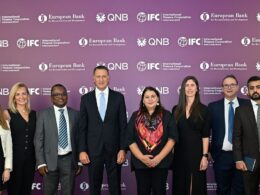The Green Climate Fund has approved $151 million in financing to strengthen climate resilience in the Horn of Africa, targeting the region’s increasing vulnerability to climate change. The funding, granted at the Fund’s 39th Board meeting, consists of a $90.7 million grant and a $60.3 million loan to support the African Development Bank’s “Building Climate Resilience for Food and Livelihoods in the Horn of Africa” programme.
The initiative is set to benefit 4.6 million people across Djibouti, Somalia, Kenya, Ethiopia, and South Sudan—areas that are severely affected by erratic rainfall, rising temperatures, and frequent droughts and floods. These climate-related challenges have worsened socioeconomic conditions, particularly for agro-pastoral communities reliant on rain-fed agriculture, leading to reduced productivity, increased disease, and land degradation.
Dr. Martin Fregene, the Bank’s Director for Agriculture and Agro-Industry, emphasised the Bank’s dedication to enhancing climate resilience, stating, “The mobilisation of the Green Climate Fund support shows the continued commitment of the African Development Bank Group to scale up climate-resilient and sustainable agriculture systems in the Horn of Africa, thereby improving food security in one of the most vulnerable regions of the planet.”
The programme will focus on community-driven and gender-balanced solutions, including sustainable land management, access to climate-smart technologies, renewable energy, capacity-building for cooperatives, agribusiness, MSMEs, and the provision of credit, climate services, early warning systems, and index insurance. In addition to benefiting local communities, the financing is expected to significantly reduce carbon emissions, sequestering an estimated 14.1 metric tons of CO2 over 25 years—equivalent to the lifetime emissions of 600,000 cars.
The African Development Bank will manage and oversee the programme, set to begin in the first quarter of 2025. The project, to be implemented over six years by the finance and agriculture ministries of the five target countries, aims to provide long-term benefits to communities throughout the region.
Dr. Anthony Nyong, the Bank’s Director for Climate Change and Green Growth said, “The Bank has had a long-standing commitment to action on climate change and is committed to ensuring that we streamline low-carbon and climate-resilient economic development in all key sectors of our work.”






















